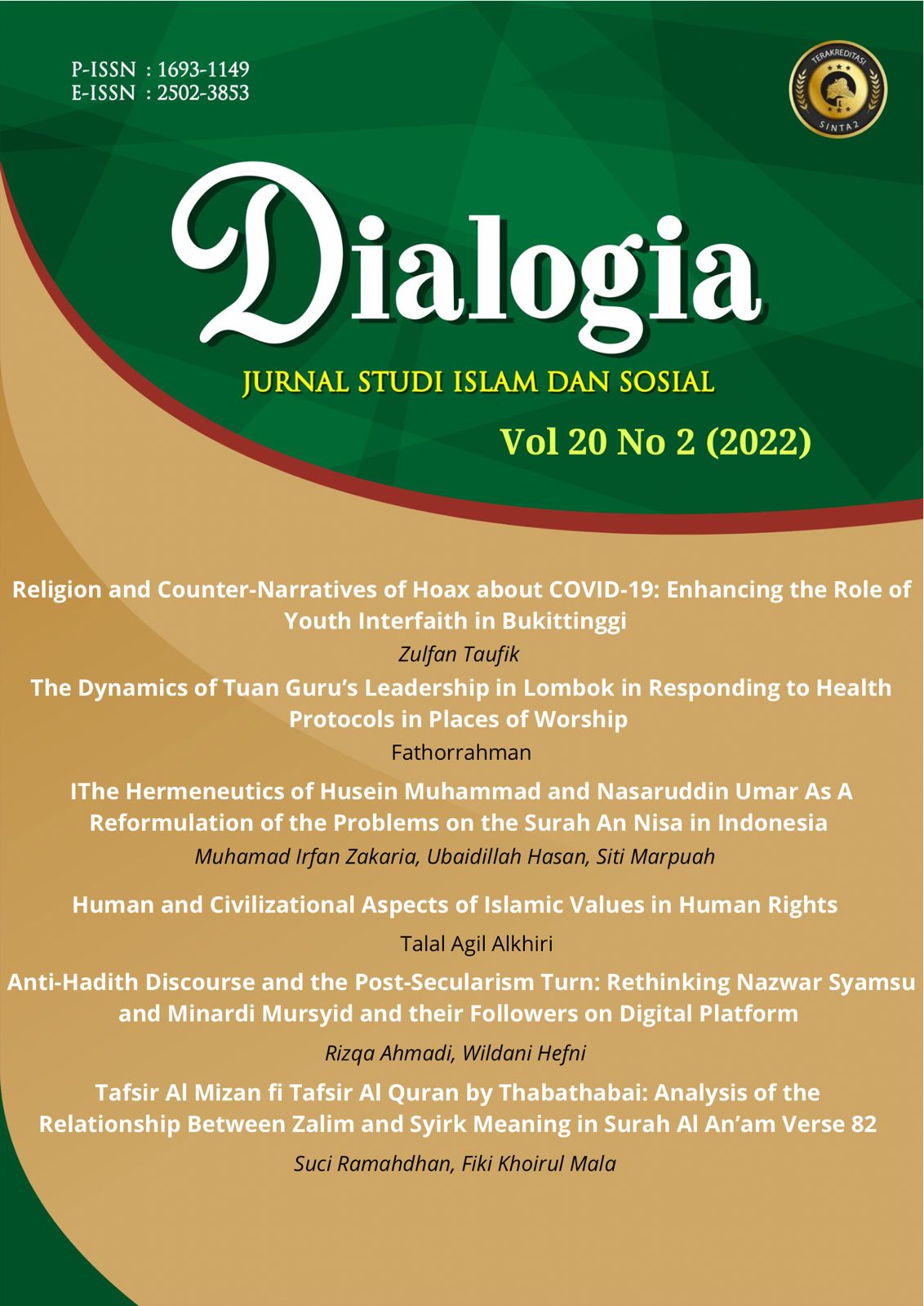The Dynamics of Tuan Guru's Leadership in Lombok in Responding to Health Protocols in Places of Worship
DOI:
https://doi.org/10.21154/dialogia.v20i2.4868Keywords:
Tuan Guru, health protocol, leadership, charismaAbstract
This research described the dynamics of leadership expressed by the three characters of Tuan Guru in Lombok. They are the Tuan Guru at Nahdlatul Wathan (NW), the Tuan Guru at Nahdlatul Ulama (NU), and the Tuan Guru, who is not tied to any organization in responding to health protocols in places of worship. To explore in more detail the leadership dynamics of the three Tuan Guru characters, this research focused on several questions. First, how Tuan Guru expresses his type of leadership in responding to the spread of COVID-19 in places of worship. Second, how is the relationship of power and charisma that Tuan Guru has built in responding to health protocols in places of worship. These questions were analyzed with a sociological approach based on the theory of power relations and charisma. As for the technique of obtaining the data, this research used an empirical study by observing and meeting several key informants and important informants to be interviewed. From this research, the researcher found that each Tuan Guru used a different way of responding to health protocols. There was a passive type of leader like what Tuan Guru NW does, there was a type of proactive leader like that of Tuan Guru NU, and a reactive-rejective type of leader like what Tuan Guru does and was not tied to any organization. In this connection, what each Tuan Guru did, created a mutual response from his congregation so that his congregation did as Tuan Guru, who is his role model.











